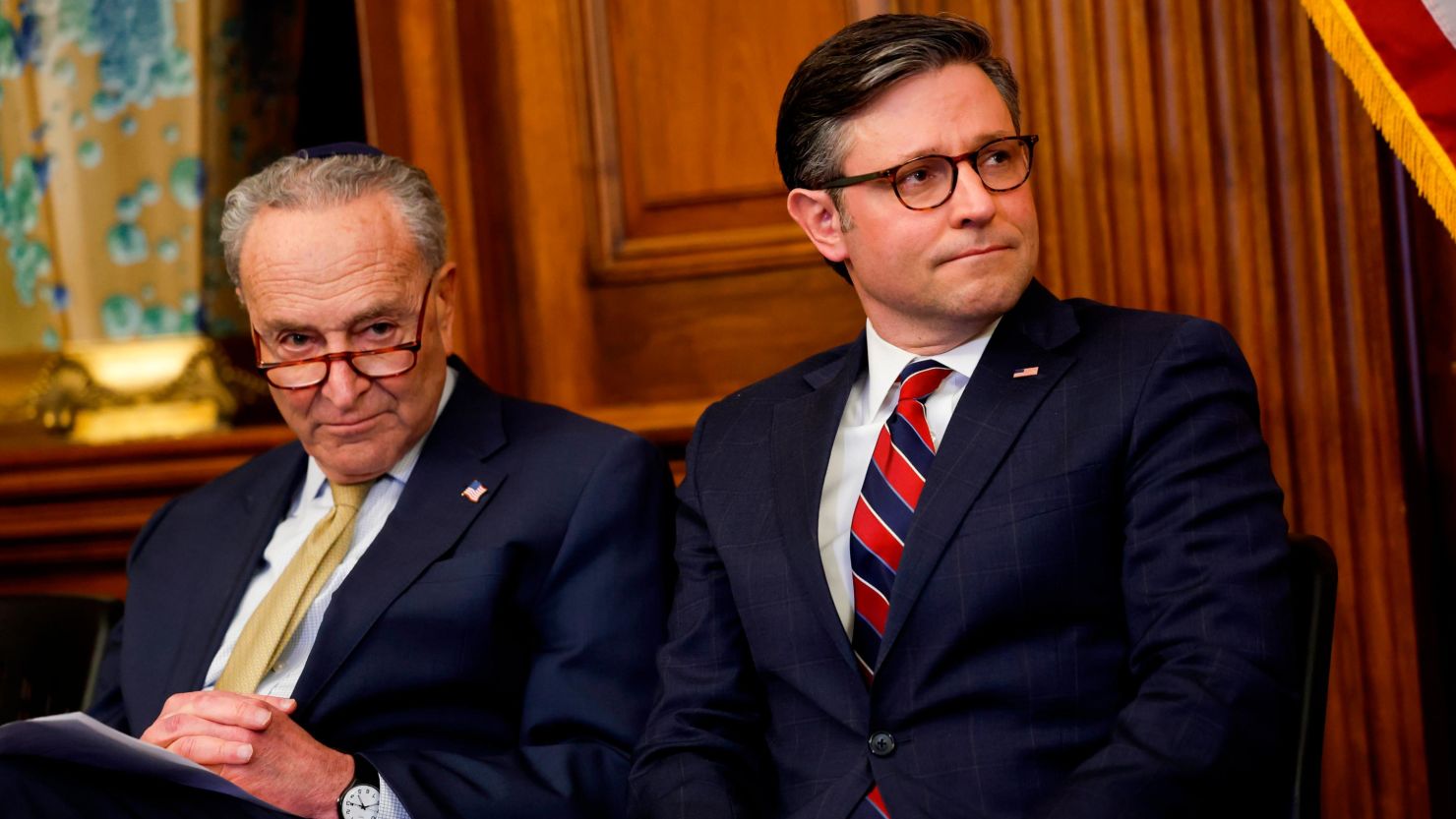House Speaker Mike Johnson and Senate Majority Leader Chuck Schumer are moving closer to an agreement to set overall funding levels for the federal government, according to congressional sources. But that doesn’t mean a government shutdown will be averted later this month.
Agreeing on an overall spending level is a key first step in funding the government – and aides to Johnson and Schumer have spent weeks trying to reach a deal on that number.
But once that number is agreed upon, then Congress will have to either pass funding bills to keep the government open through September or a stop-gap measure known as a continuing resolution to extend funding and avoid a shutdown.
That’s where things can get sticky.
The two sides will have to agree on which federal programs to fund – and not fund – and already many House Republicans are calling for provisions to clamp down on immigration at the southern border. If not, they say, they should shut down the government and not approve more funding until the White House agrees to their demands.
When lawmakers return next week, they’ll have just 10 days to avert a partial government shutdown. The first deadline is January 19 – for military construction, the Food and Drug Administration, agriculture, veterans affairs, and housing and urban development programs. Funding for the rest of the government expires on February 2, including for key agencies like the Pentagon, Labor Department, Health and Human Services and the Homeland Security Department.
Johnson and Schumer have been negotiating over whether to set spending levels consistent with the bipartisan law to raise the national debt limit last June. That agreement called for funding levels at $1.59 trillion with $886 billion for defense. But that deal faced backlash from House conservative hardliners demanding deeper cuts.
Johnson and Schumer have been negotiating spending cuts as part of this agreement, according to congressional sources.
House Republicans are looking to accelerate IRS cuts and claw back unspent Covid-19 aid funds as part of their cuts.
Speaking to reporters Wednesday, Schumer sounded optimistic that a shutdown could be averted and deal over funding levels would be reached.
“We’ve made real good, good progress in that regard and we’re getting quite close,” Schumer said. “I’m hopeful that we can get a budget agreement soon, and I’m hopeful that we could avoid this shutdown.”


